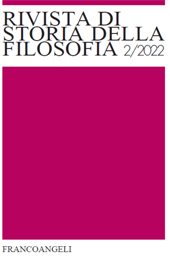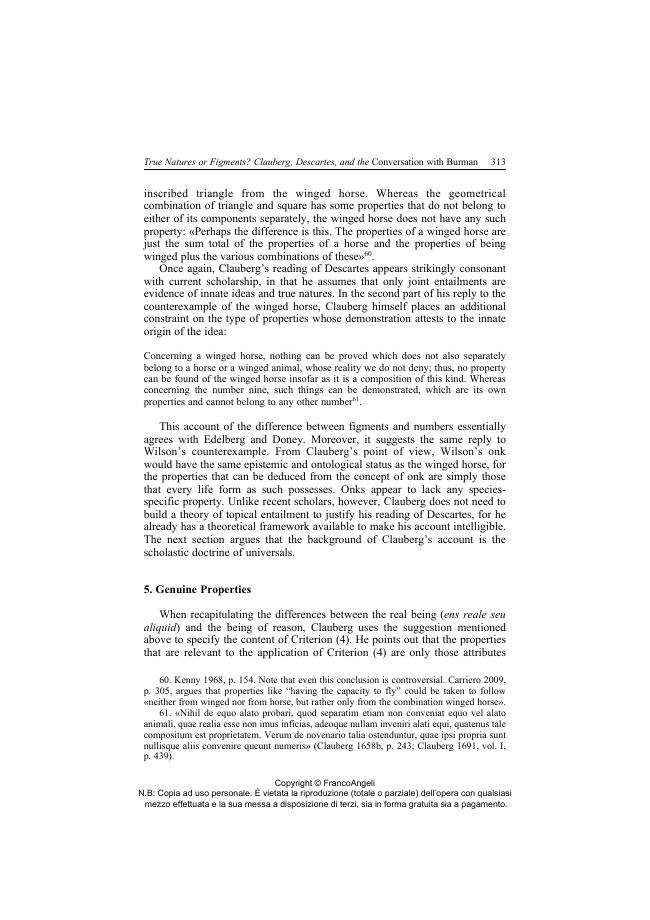True Natures or Figments? : Clauberg, Descartes, and the Conversation with Burman
P. 301-325
In the Fifth Meditation, Descartes advanced controversial criteria for distinguishing innate ideas, which represent "true" natures such as triangles, from factitious ideas, which represent figments such as winged horses. This paper focuses on Johannes Clauberg's interpretation of Descartes's doctrine of figments and argues that this exegetical contribution by one of the earliest Cartesians is worthy of investigation for three main reasons. First, Clauberg's tacit recourse to Descartes's Conversation with Burman to clarify the Fifth Meditation reveals something relevant for our knowledge of that enigmatic document.
Second, Clauberg's discussion of Descartes's criteria for innateness in the light of his own scholastic background has interesting links with recent scholarly debates on the topic. Third, pointing out the shifts in Clauberg's approach to figments throughout the development of his Ontosophia project makes it possible to reassess the impact of Descartes's metaphysics on Clauberg's ontology. [Publisher's text]
Forma parte de
Rivista di storia della filosofia : LXXVII, 2, 2022-
Artículos del mismo número (disponibles individualmente)
-
Información
Código DOI: 10.3280/SF2022-002006
ISSN: 1972-5558
KEYWORDS
- Clauberg, Descartes, Conversation with Burman, figments, ontology, properties



